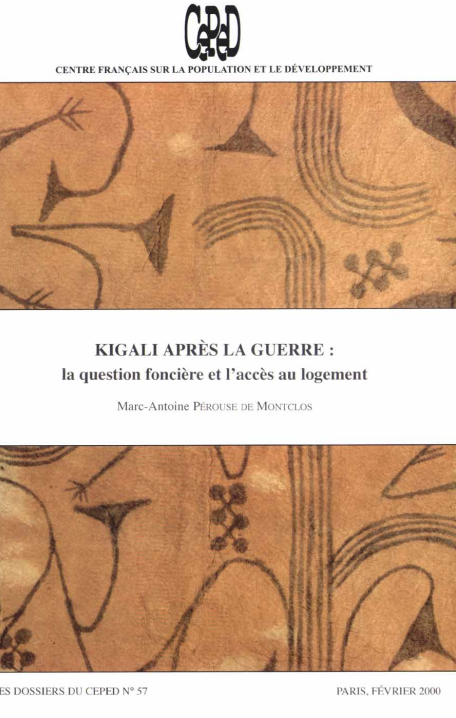Location
UN-Habitat is the United Nations programme working towards a better urban future.
Its mission is to promote socially and environmentally sustainable human settlements development and the achievement of adequate shelter for all. Cities are facing unprecedented demographic, environmental, economic, social and spatial challenges. There has been a phenomenal shift towards urbanization, with 6 out of every 10 people in the world expected to reside in urban areas by 2030. Over 90 per cent of this growth will take place in Africa, Asia, Latin America, and the Caribbean. In the absence of effective urban planning, the consequences of this rapid urbanization will be dramatic. In many places around the world, the effects can already be felt: lack of proper housing and growth of slums, inadequate and out-dated infrastructure – be it roads, public transport, water, sanitation, or electricity – escalating poverty and unemployment, safety and crime problems, pollution and health issues, as well as poorly managed natural or man-made disasters and other catastrophes due to the effects of climate change. Mindsets, policies, and approaches towards urbanization need to change in order for the growth of cities and urban areas to be turned into opportunities that will leave nobody behind. UN-Habitat, the United Nations programme for human settlements, is at the helm of that change, assuming a natural leadership and catalytic role in urban matters. Mandated by the UN General Assembly in 1978 to address the issues of urban growth, it is a knowledgeable institution on urban development processes, and understands the aspirations of cities and their residents. For close to forty years, UN-Habitat has been working in human settlements throughout the world, focusing on building a brighter future for villages, towns, and cities of all sizes. Because of these four decades of extensive experience, from the highest levels of policy to a range of specific technical issues, UN-Habitat has gained a unique and a universally acknowledged expertise in all things urban. This has placed UN-Habitat in the best position to provide answers and achievable solutions to the current challenges faced by our cities. UN-Habitat is capitalizing on its experience and position to work with partners in order to formulate the urban vision of tomorrow. It works to ensure that cities become inclusive and affordable drivers of economic growth and social development.
Members:
Resources
Displaying 201 - 205 of 223Kigali Après la Guerre : La Question Foncière et l'Accès au Logement
Conflits armés et crises alimentaires contribuent à leur manière à urbaniser
l’Afrique sub-saharienne lorsque les villes jouent un rôle de refuge et que les combats
se déroulent à la campagne. Malgré l’évacuation de ses habitants lors de la chute du
régime Habyarimana en 1994, la capitale du Rwanda n’a pas démenti ce schéma et
s’est vite repeuplée une fois le génocide terminé. La différence est qu’elle est
désormais tenue par des élites tutsi et que les bouleversements de l’année 1994 ont
Istanbul Declaration on Human Settlements and Habitat Agenda
These two important documents include obligations related to women's housing and inheritance rights. Under the Habitat Agenda, States commit themselves also to:
"Provid[e] legal security of tenure and equal access to land to all people, including women and those living in poverty; and undertaking legislative and administrative reforms to give women full and equal access to economic resources, including the right to inheritance and to ownership of land and other property, credit, natural resources and appropriate technologies" (Sec. 40b)
HUMAN SETTLEMENTS SECTOR REVIEW, UNION OF MYANMAR
The oft-cited UN Habitat report on the 1989-1990 urban resettlement programme in Burma which the report estimates affected 1.5 million people (16 percent of the urban population). "...During the early months of 1990 international attention was focused on the Yangon squatter clearance and resettlement programme launched by the Government in 1989. The Mission found that the programme is not limited to Yangon, but has broad national coverage.
TZA Research Cooperation with ARU 2015-2020 - Research Cooperation with ARU
General
ARU has applied to Sida for funding of of 31 500 000 SEK to carry out the programme Strengthening Capacity on Research and Innovation for Sustainable Land and Environmental Management for Inclusive Development”. The intervention aims at building institutional research capacity at ARU in order to generate research that can be used to address major issues of developement in Tanzania and especially for people who live in poverty. The programme consists of 7 subprogrammes of which most have a thematic foucus including, urban planning and development, rural development, markets, and land rights and large scale investmensts. Other programs are more concerned with research management capacity and use of research results. ARU has partnership with Swedish universities and institutions for support to research capacity development. Of the agreed 31 500 000 SEK 17 498 000 SEK will be directed to ARU, 11 040 000 SEK through UU/ISP to Swedish universities and institutions, 1 462 000 SEK will be transferred through UU/ISP to Tanzanians students while in Sweden and 1 500 000 SEK to UU/ISP for coordination of Swedish collaborating universities and institutions.
Objectives
To increase Tanzania's production and use of scientific knowledge for inclusive economic growth and social development.





